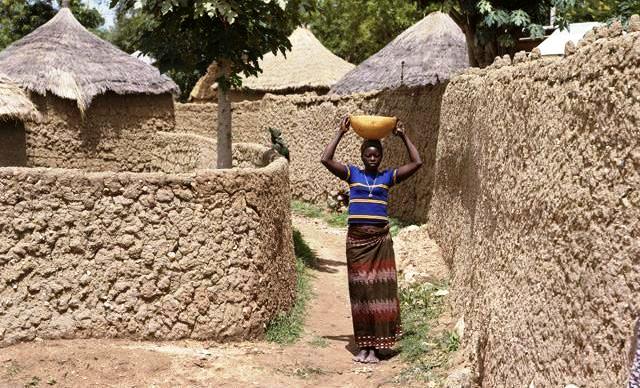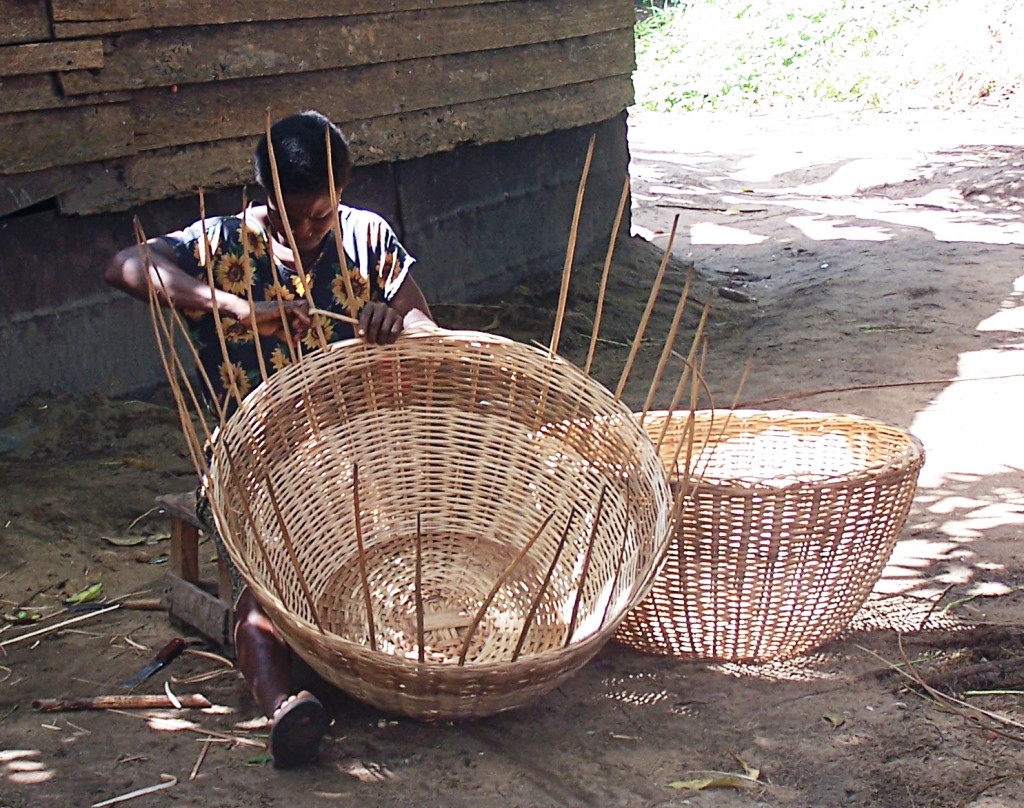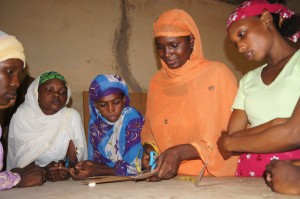Breast ironing: ‘Yes, I did this to my daughter’
Fomuso Kazua (name changed) was just a few days shy of turning 12 when she attained puberty. That was also when she started showing signs of developing breasts. One day, out of the blue, her mother told her that she would have to do something that would seem unpleasant to Fomuso, but she had no choice because all girls had to go through it. “Everyday she would press down on my chest with a piping hot stone so that my breasts would stop growing. It hurt terribly, but there was nothing I could do,” she recalls. By the end of that year, the young girl was suffering terrible physical problems: one of her breasts had been scalded into non-existence while the other developed cysts that were very painful. It was only after she turned 23 last year and got to read her first foreign magazine that she realised the not all girls in the world have to go through this ordeal.
What Fomuso has gone through is the brutal practice of breast ironing that is most common in the West African country of Cameroon. It refers to the actual process of flattening out the chest of a young girl – mostly pre-pubescent or pubescent – in order to make the breasts disappear or stop growing. It is usually done by pounding or massaging the breasts using any hard or heated object.
According to the United Nations, breast ironing is one of the five forgotten crimes against women. It estimates that some 3.8 million teenagers are affected by it. In Cameroon, as many as one-in-four girls suffer because of breast ironing. While the practice certainly thrives in Cameroon, there are reports of it occurring among the Cameroonian Diaspora around the world as well.
As is evident from Fomuso’s account, breast ironing can have tremendous physical and psychological consequences for young women. Obyoma Mercy, a young doctor of Nigerian origin, elaborates, “The obvious effect is tissue damage – because the breast tissue is the first to take the trauma. In the process, there may be injuries and infections, malformed breasts, and in very extreme cases, even the eradication of the breasts. It all really depends on the method used. If there is too much heat given to the area, it is possible that the skin may get scalded. If pressure is applied to stunt the growth then there could be a complete impairment of the mammary gland. The long-term physical effects can include cysts, tumours and adhesions, besides incapacitation for breastfeeding.”
FEATURE: First, #FGM. Now a shocking new practice comes to the UK http://t.co/lah1EwoVDg #BreastIroning. pic.twitter.com/Etif14eV0b
— The Journal (@GlasgowJournal) July 5, 2014
Even as the child is forced to live with physical deformity, there is no telling of the deep, life-long, psychological effects. “As with the imposition of any injury that is culturally sanctioned, women subjected to breast ironing might find themselves being depressed, or under severe post-traumatic stress disorder, and even a state of abhorrence for their bodies. They could also struggle from the psychological effects of injury that can be a long-term consequence in its own right,” adds Mercy.
If this is what breast ironing can do to young girls, why are they being subjected to it, especially by their own mothers? Fomuso asked this question to her mother :“She told me it was to protect me – because I could have been raped or sexually abused. And if I had gotten pregnant, the whole family’s respect and honour would have been destroyed.”
Here’s why Fomuso’s mother is scared for her. A high dropout rate among school-going girls, rape and teenage pregnancy are a reality in Cameroon. In 2010, according to a United Nations Population Fund (UNFPA) study, around 30 per cent of the girls surveyed in the country, between the ages of 20 and 24, had already given birth to a child before turning 18. Moreover, only around 39 per cent girls had gone in for secondary education.
So, in order to protect their daughters from unwanted attention, sexual harassment and rape as well as ensure that they get educated rather than being forced into child marriage, mothers resort to breast ironing. Anything from wooden pestles, leaves, bananas, coconut shells, grinding stones, hammers and even spatulas heated over hot coals, are used to flatten the developing chest of a young woman.
Noelle Blessing, a Cameroonian mother, presents her side of the story. “Yes, I did do this to my daughter,” she begins, pointing to her daughter’s now flat chest. “But I had my own reasons. In my community, girls are considered ‘fresh meat.’ As soon as they grow up the men and boys around them begin paying them unwanted attention. I wanted my daughter to study, I wanted her to fearlessly pursue her ambitions.” Choking on tears, she continues, “The sad thing is that she could do this only after compromising on her physical health and appearance. You see, after the ironing, she was unattractive – and that meant that she was safe.”
A lot of words are minced while talking about how patriarchy is essentially a masculine phenomenon and how women continue to perpetrate it. The manifestation of this is the mindless violence it perpetuates and encourages. Mercy explains, “When you look at cultures where such practices thrive, you can see two things very clearly. One, that men objectify women. Two, that the women are frightened for their safety and so they are willing to inflict such severe pain and trauma on their lot. It is a social issue and not just a gender issue. Women are being treated as second-class citizens and are being kept out of access when it comes to development elements – all through the heavy hand of violence.”
With anguish in her heart, Blessing concludes, “Who said a mother wants to hurt her daughter? What mother wants her child to suffer pain, or even be imperfect in her body through the imposition of such pain? Our hands are tied and we are forced to become monsters to protect our children. It is the worst feeling to prepare to inflict pain on your child, and to actually do it, and to struggle to keep at it because your child needs to be protected even though her cries and screams pierce your ears. For the amount of tears I have shed every day, as I listened to her struggle in pain, I can never forgive myself.”
Author: Kirthi Jayakumar
Editor: Manasi Gopalakrishnan
This is a Women’s Feature Service report.








